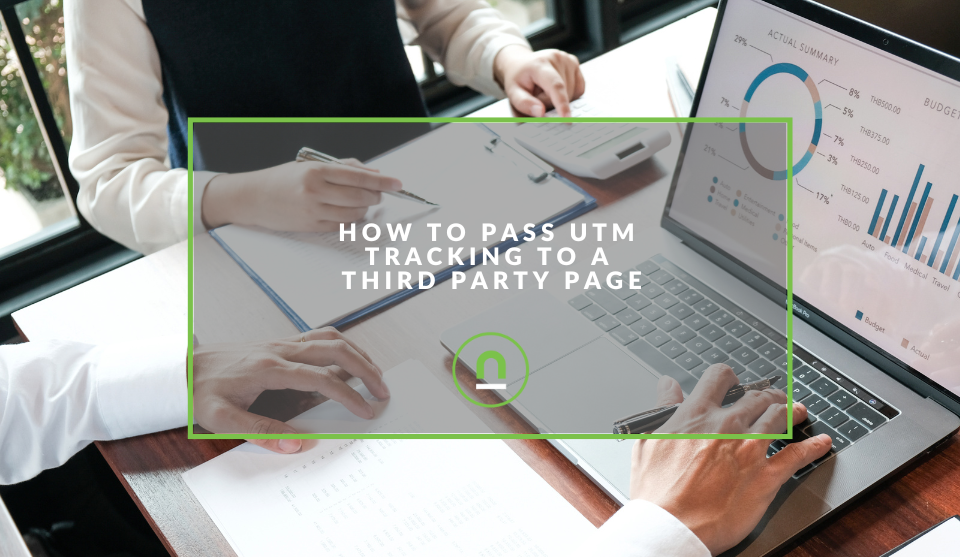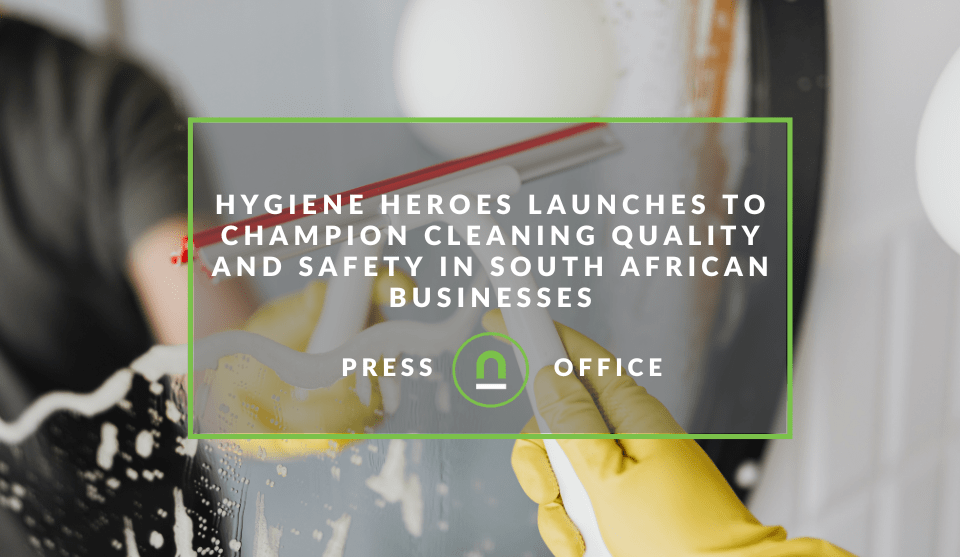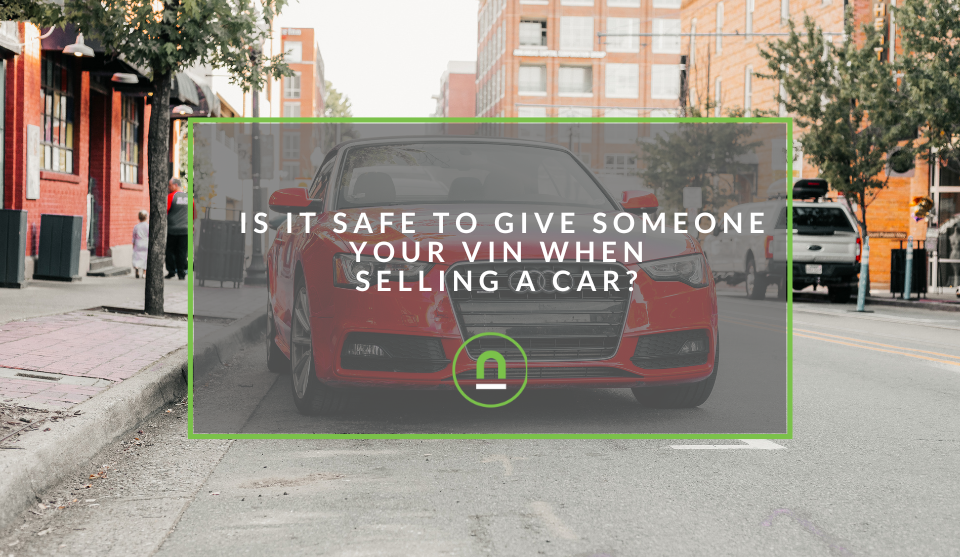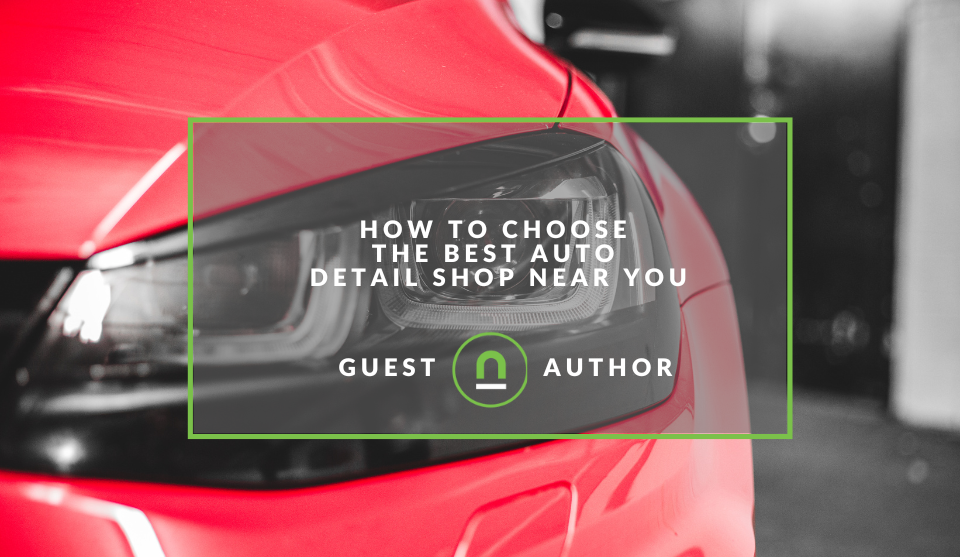Recent posts

nichemarket Advice
How To Pass UTM Tracking To A Third Party Page
10 October 2025

Petrol heads
Tips For Buying A New Car In South Africa
30 September 2025

nichemarket Advice
19 FREE Business Directories In Mexico
27 September 2025

Press Releases
Hygiene Heroes Launches to Champion Cleaning Quality and Safety in South African Businesses
25 September 2025
Popular posts
Extravaganza
Trending Music Hashtags To Get Your Posts Noticed
24 August 2018
Geek Chic
How To Fix iPhone/iPad Only Charging In Certain Positions
05 July 2020
Extravaganza
Trending Wedding Hashtags To Get Your Posts Noticed
18 September 2018
Money Talks
How To Find Coupons & Vouchers Online In South Africa
28 March 2019
Is It Safe to Give Someone Your VIN When Selling a Car?
24 May 2025 | 0 comments | Posted by Che Kohler in Petrol heads
When selling your car, one of the most common questions potential buyers ask is for the Vehicle Identification Number (VIN). Many sellers hesitate, wondering if sharing this 17-character code could put them at risk.
The short answer is:
Yes, it's generally safe to share your VIN with serious buyers, but you should understand the risks and take proper precautions.
Unfortunately, there are ALWAYS scammers going through classified sites, Facebook marketplace posts and other vehicle sale sites looking for naive and gullible targets.
Since selling your car is not a regular occurrence for many, and very few have much experience in the process, scammers can find ways to exploit the process.
What Is a VIN and Why Do Buyers Want It?
Your VIN is essentially your car's fingerprint – a unique identifier that contains crucial information about your vehicle's manufacturing details, specifications, and history.
Legitimate buyers request the VIN for several valid reasons:
- Vehicle History Research: Buyers use services like Carfax, AutoCheck, or the National Insurance Crime Bureau to research accident history, flood damage, theft records, and maintenance history. This helps them make informed purchasing decisions and verify that your car matches your descriptions.
- Financing and Insurance Preparation: Lenders and insurance companies require the VIN to provide accurate quotes and loan pre-approvals. Serious buyers often want to arrange financing before viewing the car.
- Verification of Vehicle Details: The VIN confirms the year, make, model, engine type, and other specifications, ensuring the car matches online listings and preventing miscommunication.
- Theft Protection: Buyers can verify the vehicle isn't stolen by checking it against national databases.
What Information Does a VIN Reveal?
Understanding what your VIN discloses helps you make informed decisions about sharing it. A VIN reveals manufacturing information like the country of origin, manufacturer, vehicle type, engine specifications, model year, assembly plant, and production sequence number.
It also provides access to vehicle history reports showing accident records, flood damage, previous owners, service records, recall information, and title issues.
However, your VIN does not reveal personal information like your name, address, phone number, Social Security number, or financial details. It cannot be used to access your bank accounts, steal your identity, or obtain your personal contact information.
Potential Risks of Sharing Your VIN
While the VIN itself doesn't contain personal information, there are some risks to consider:
- Cloning Scams: Criminals might use your VIN to create fake titles or registration documents for stolen vehicles of the same make and model. This is relatively rare but can create legal headaches if discovered.
- Fraudulent Listings: Scammers could use your VIN and photos to create fake listings on other platforms, potentially damaging your reputation or confusing potential buyers.
- Negotiation Disadvantage: If a buyer discovers negative history through a VIN check that you weren't aware of, it might weaken your negotiating position.
- Time-Wasters: Providing the VIN to non-serious inquirers might result in multiple people running reports on your vehicle without genuine purchase intent.
Best Practices for Sharing Your VIN Safely
To minimise risks while accommodating legitimate buyers, follow these guidelines:
- Screen Potential Buyers First: Before sharing your VIN, have a phone conversation or exchange several messages to gauge the buyer's seriousness. Ask about their timeline, financing status, and specific questions about the vehicle.
- Share Selectively: Don't include the VIN in your initial listing. Instead, provide it only to buyers who demonstrate genuine interest and ask specific questions about the vehicle's history or specifications.
- Run Your Own Report First: Before listing your car, obtain your own vehicle history report. This allows you to address any issues upfront and prevents surprises during negotiations.
- Document Who You Share With: Keep a record of who you've shared your VIN with, including their contact information and the date. This helps if any issues arise later.
- Meet in Safe Locations: When meeting potential buyers, choose public places like shopping center parking lots or police station parking areas. Some police departments even have designated safe exchange zones.
- Verify Buyer Identity: For high-value vehicles, consider asking to see the buyer's driver's license before sharing sensitive information or allowing test drives.
Red Flags to Watch For
Be cautious if potential buyers exhibit these warning signs:
Requesting the VIN immediately without asking basic questions about the car, offering to buy sight unseen based only on the VIN, asking for additional personal information beyond what's necessary for the transaction, pressuring you to share the VIN urgently, or communicating only through email or text without phone contact.
Alternative Approaches
If you're uncomfortable sharing the full VIN initially, consider these alternatives:
- Partial VIN Disclosure: Share only the last 8 digits of the VIN, which still allows buyers to verify basic vehicle information without accessing complete history reports.
- Provide Key Information Separately: Instead of the VIN, offer specific details like exact mileage, maintenance records, any accident history, and recent repairs or inspections.
- Offer to Meet First: Suggest meeting in person to show the vehicle and discuss details before sharing the VIN for official reports.
When NOT to Share Your VIN
Avoid sharing your VIN in these situations:
With buyers who seem suspicious or ask inappropriate questions, in public forums or social media posts, with people who won't provide their own contact information, when you haven't had any meaningful conversation about the vehicle, or if the buyer seems to be fishing for information without serious purchase intent.
Protecting Yourself During the Sale
Beyond VIN considerations, protect yourself throughout the selling process by accepting only secure payment methods like cashier's checks, bank transfers, or cash for lower amounts.
Verify funds before transferring ownership, complete all paperwork properly, including title transfer and bill of sale, remove personal items and reset electronic systems before handing over keys, and notify your insurance company and DMV of the sale promptly.
Sharing your VIN is not a Sin
Sharing your VIN with legitimate buyers is a normal part of the car-selling process and is generally safe when done thoughtfully. The key is being selective about who you share it with and when.
Focus on building rapport with potential buyers first, then provide the VIN to those who demonstrate genuine interest and legitimate reasons for needing it.
Remember that transparency often helps sales rather than hindering them. Buyers appreciate sellers who are open about their vehicle's history and willing to provide information for verification. By being smart about how and when you share your VIN, you can facilitate serious inquiries while protecting yourself from potential scams.
The most important thing is trusting your instincts.
If something feels off about a potential buyer or their requests, it's perfectly acceptable to decline sharing information until you feel more comfortable. A legitimate buyer will understand and respect your caution, while scammers often become pushy or disappear when faced with reasonable security measures.
Are you looking to promote your business?
Automotive businesses can create a free business listing on nichemarket. The more information you provide about your business, the easier it will be for your customers to find you online.
Registering with nichemarket is easy; all you will need to do is head over to our sign-up form and follow the instructions. If you require a more detailed guide on how to create your profile or your listing, then we highly recommend you check out the following articles.
Recommended reading
If you enjoyed this post and have time to spare, why not check out these related posts and dive deeper down the rabbit hole that is vehicle management?
- The Most Frequently Stolen or Hijacked Cars In South Africa
- Get Instant Quotes & Sell Your Car Online In South Africa
- How Much Does A Personalised Number Plate Cost In South Africa
- How To Save Money To Buy Your Dream Car
- 7 Documents You Need When Selling A Car
- 3 Best Road Trips In South Africa
- 7 Ways To Choose The Best Car Roof Rack
- 5 Car Preparation Tips for a Long Road Trip
You might also like
How to Choose the Best Auto Detail Shop Near You
11 September 2025
Posted by Eva Vergis in Petrol heads
Choosing the right auto detailer is key to a pristine car. Our guide shows you what to look for and where to find the best local shops in Canada to w...
Read moreExploring The World Of Online Trading In South Africa
10 September 2025
Posted by Gabriela Pelayes in Money Talks
Dive into online trading in South Africa. Learn about the market growth, find local platforms, market analysis, and strategies to start your trading ...
Read more{{comment.sUserName}}
{{comment.iDayLastEdit}} day ago
{{comment.iDayLastEdit}} days ago
 {{blogcategory.sCategoryName}}
{{blogcategory.sCategoryName}}


